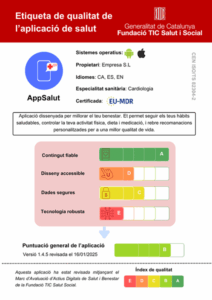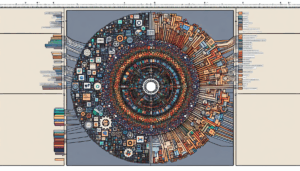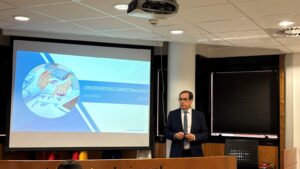In Madrid, a striking and unique spectacle took place when a group of young people, dressed as dinosaurs, staged a demonstration in front of the Royal Spanish Academy (RAE). This protest, organized by the We are Family collective, aimed to highlight the growing “linguistic gap” between different generations, and how the language used by young people has evolved to the point of sometimes becoming a hindrance to communication with older people.
Throughout the demonstration, the Spanish capital was adorned with expressions such as “funar,” “salseo,” “lache,” and “beef,” which appeared on colorful posters. The purpose was not only to capture attention, but also to provoke reflection on the meaning and use of these words. The response was immediate: thousands of citizens, both on the streets and on social media, tried to decipher the meaning of these expressions, amusingly discovering a language with which, according to a study, more than half of Spaniards over 40 struggle to understand.
The neighborhoods of Callao, Malasaña, and Chueca became the epicenter of this movement, highlighting the speed at which youth slang changes and evolves, largely leaving behind the use of formal language. Terms that were once part of youth vocabulary, such as ‘dabuten,’ ‘chachipiruli,’ or ‘nasti-de-plasti,’ have been replaced by others that reflect a clear influence of digitization and globalization.
The action taken by We are Family aims not only to show the speed at which language changes, but also to open an intergenerational debate about the role of language as a tool for connecting and understanding. As the world rapidly globalizes, the question arises of whether linguistic norms should adapt to these new emerging languages or remain unchanged. Generations Z and Alpha exemplify how the digital age has generated a distinctive language, often unknown to previous generations.
This event in Madrid is part of a broader project that aims to promote open dialogue about the evolution of language and its cultural impact on society today. The campaign seeks to convey a clear message: language is a living organism that should unite, not divide.
via: MiMub in Spanish











